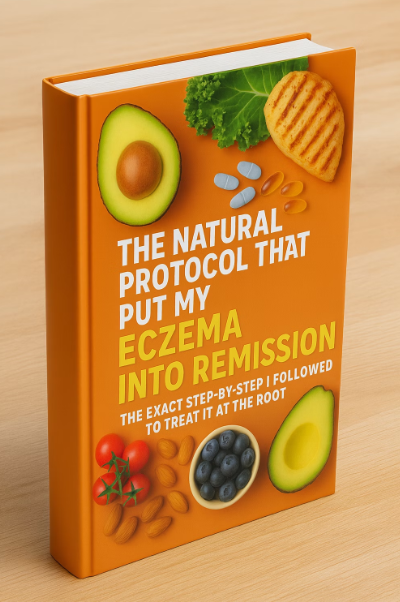Discover how the right foods can calm your skin and finally bring relief from eczema — naturally. Inside, you’ll learn what to eat, what to avoid, and how 35 exclusive anti-inflammatory recipes can transform your skin from the inside out.
👉 Get the full Eczema Nutrition Guide here and start your healing journey today.

Why Your Diet Might Be the Missing Key to Controlling Eczema
If you’ve tried creams, steroids, or expensive skincare routines but your eczema still keeps coming back, it’s time to look deeper — inside your gut.
Recent scientific studies confirm that the connection between your gut and your skin plays a major role in inflammation, immunity, and how your body reacts to food triggers.
When your gut microbiome becomes imbalanced — a condition known as dysbiosis — your intestinal barrier weakens. This can lead to systemic inflammation, worsening eczema flare-ups, itching, and redness.
That’s why your diet isn’t just about what you eat — it’s about how your body responds to it. Choosing the right foods can help calm your immune system, repair your gut, and reduce the inflammation that fuels eczema from within.
In this article, you’ll learn:
- The science behind the gut–skin connection and eczema;
- Which foods can make your eczema worse (and which ones can help heal it);
- How to start building your own anti-inflammatory diet plan;
- And why 35 exclusive recipes in the Eczema Nutrition Guide have helped so many people finally find relief.
👉 Get the full Eczema Nutrition Guide here to discover the exact foods, recipes, and daily plan that support real, lasting skin improvement.
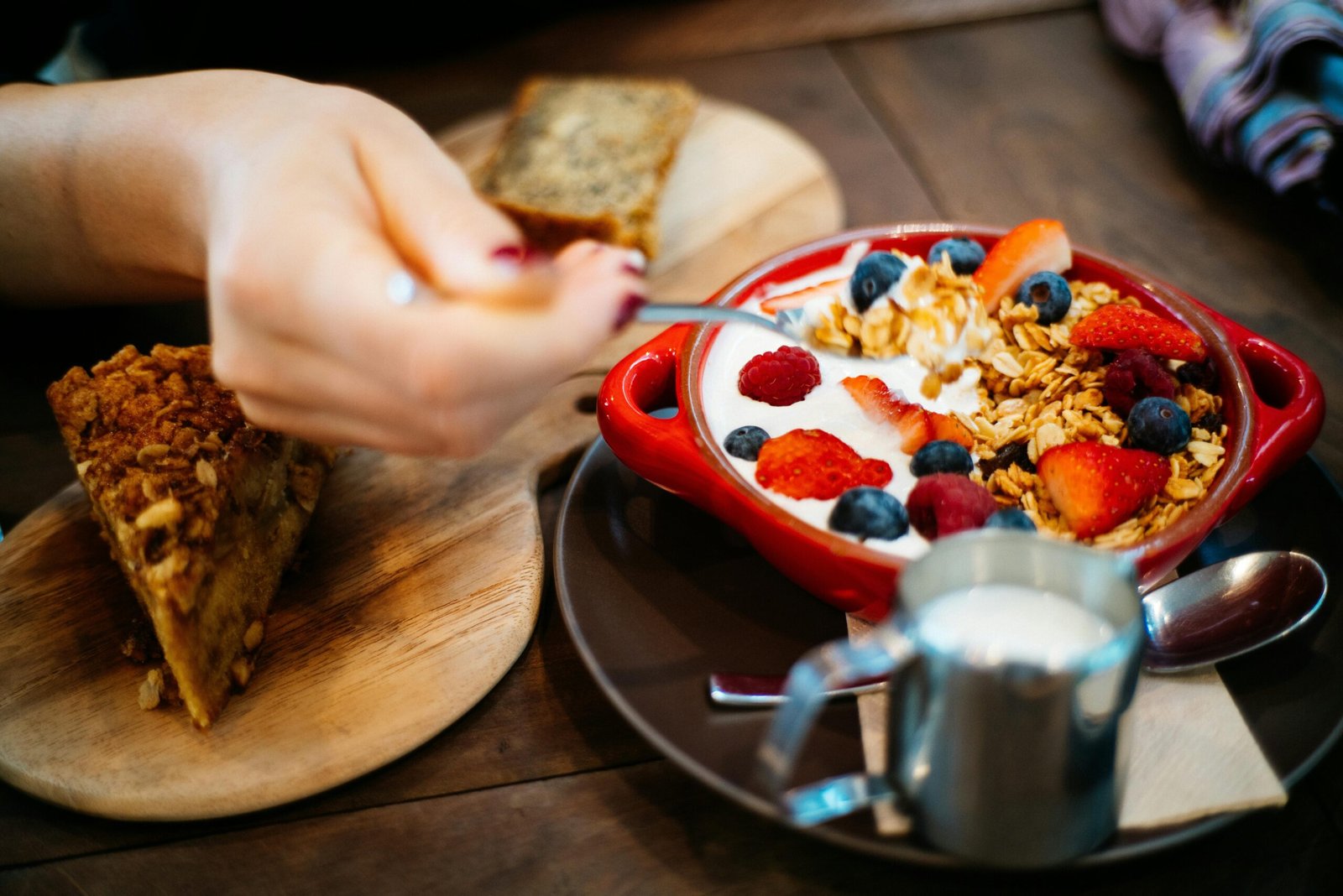
The Gut–Skin Axis: Why Your Intestine Matters
Most people think eczema starts on the skin — but in reality, it often starts in the gut.
Your digestive system is home to trillions of microorganisms, collectively known as the gut microbiome. These microbes are responsible for regulating inflammation, digestion, and even how your immune system reacts to potential irritants.
When this delicate balance is disrupted (a condition known as gut dysbiosis), your intestinal barrier can weaken.
This “leaky gut” allows toxins, undigested food particles, and inflammatory molecules to enter your bloodstream — triggering immune reactions that can appear as eczema on your skin.
🧬 Scientific evidence supports this gut–skin link:
- A 2021 review published in Frontiers in Immunology confirmed that intestinal dysbiosis is strongly associated with atopic dermatitis (eczema). (Source: PMC6518061)
- Another clinical trial found that supplementing with Lactobacillus paracasei improved skin sensitivity and hydration in eczema-prone individuals. (Source: PMC6021588)
- Diets rich in processed foods and poor in fiber — typical of the Western diet — have been shown to reduce anti-inflammatory gut bacteria and increase eczema severity. (Source: PMC10487925)
In other words, when your gut is inflamed, your skin shows it.
Supporting your gut microbiome through anti-inflammatory, nutrient-dense foods isn’t just good for digestion — it’s one of the most powerful, natural ways to reduce eczema flare-ups and support long-term skin healing.
👉 Learn exactly which foods help restore your gut balance inside the Eczema Nutrition Guide — including a 3-step plan and 35 anti-inflammatory recipes that target the root cause of eczema.
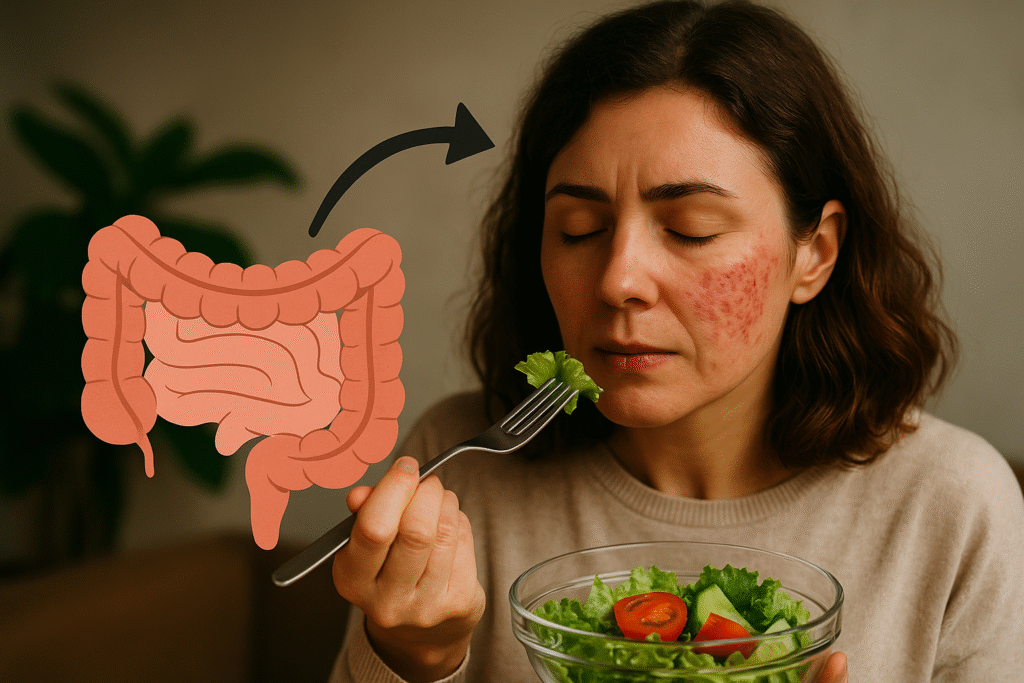
How Diet Can Trigger or Help Eczema
If you’ve ever noticed your eczema flaring up after eating certain foods, that’s not your imagination.
While food doesn’t cause eczema, science shows that it can influence the severity and frequency of flare-ups by affecting inflammation, gut health, and immune balance.
Let’s break it down — here are the main foods that can trigger inflammation and those that can support skin healing:
⚠️ Trigger Foods That May Worsen Eczema
- Processed and sugary foods – Added sugars and refined carbs spike insulin and inflammation, worsening eczema symptoms. (MDPI Review, 2023)
- Excess sodium (salt) – A 2024 study showed that even 1 extra gram of sodium per day increased the risk of active eczema. (EatingWell Report)
- Dairy and gluten – Some individuals report significant improvement after temporarily removing dairy or gluten. While not everyone reacts, these foods can trigger immune responses in sensitive people. (PMC5736303)
- Fried foods and trans fats – These promote oxidative stress and pro-inflammatory cytokines that aggravate eczema.
- High-glycemic foods (white bread, pastries, soda) – Cause blood sugar spikes linked to higher inflammation levels.
💡 Tip: Instead of cutting out everything at once, remove one or two food groups for 3–4 weeks and monitor changes. A personalized elimination plan is part of the Eczema Nutrition Guide.
🌿 Anti-Inflammatory Foods That Support Eczema Healing
- Omega-3–rich fish (salmon, sardines, mackerel) – Reduce inflammatory mediators and improve skin barrier function. (Medical News Today, 2024)
- Colorful fruits and vegetables – Provide antioxidants like quercetin and polyphenols that calm skin inflammation.
- Fermented foods (kefir, sauerkraut, kimchi) – Contain probiotics that strengthen the gut barrier and regulate immunity. (PMC7588786)
- High-fiber foods (chia, flaxseed, leafy greens) – Feed beneficial gut bacteria that produce anti-inflammatory short-chain fatty acids.
- Turmeric, ginger, and olive oil – Proven natural anti-inflammatory ingredients that support gut and skin health.
- Hydration foods (cucumber, coconut water, soups) – Help restore skin moisture from within.
🌸 Want to see how to combine these foods into simple, delicious eczema-friendly meals?
Check out the Eczema Nutrition Guide — with 35 exclusive Recipes that balance gut health, reduce inflammation, and make eating for your skin easy and enjoyable.
📚 What Science Says About Elimination and Diet Changes
Dietary changes don’t replace medical treatment, but they can significantly reduce symptom intensity.
A 2022 meta-analysis found that elimination diets led to improvements in eczema severity, itching, and sleep quality — especially when combined with probiotic-rich foods. (ScienceDirect Study, 2022)
However, researchers also warned that over-restrictive diets can cause nutrient deficiencies, so guidance is key. (PMC11151999)That’s why having a clear, structured approach matters — and that’s exactly what you’ll find inside the Eczema Nutrition Guide: a step-by-step food plan designed to calm inflammation, repair your gut, and restore your skin’s balance naturally.
How to Develop an Anti-Inflammatory Diet Plan for Eczema
If you want to see real, lasting improvement in your skin, you need more than random diet changes — you need a structured plan that supports your gut, reduces inflammation, and nourishes your body every day.
Here’s a simple step-by-step framework to help you start building your own anti-inflammatory diet plan for eczema:
🥦 Step 1: Identify and Eliminate Potential Triggers (3–4 Weeks)
Begin by removing 1–2 food groups that are known to cause inflammation or immune reactivity — such as dairy, gluten, or processed foods.
Keep a daily log of your meals, energy levels, and skin reactions.
👉 Inside the Eczema Nutrition Guide, you’ll find printable tracking sheets and a 3-week elimination plan designed specifically for eczema-prone skin.
🍲 Step 2: Focus on Healing Foods That Restore Your Gut
After removing the triggers, rebuild your diet with nutrient-dense, anti-inflammatory foods.
Include plenty of colorful vegetables, omega-3-rich fish, probiotic foods (like kefir, sauerkraut, and miso), and prebiotic fibers (like oats, flaxseed, and bananas).
Hydration also matters — aim for at least 2 liters of filtered water daily, and add herbal teas like chamomile or rooibos to calm inflammation.
💡 Tip: Your gut loves variety — rotate foods weekly to encourage a diverse microbiome and prevent new sensitivities.
🧩 Step 3: Reintroduce Foods Slowly and Mindfully
After 3–4 weeks of elimination, start reintroducing one food at a time every few days.
Notice any changes in itching, redness, or bloating.
This is how you’ll discover which foods your body tolerates best — without guessing or over-restricting.
This gentle reintroduction process is explained in detail inside the Eczema Nutrition Guide, along with food charts and recipes to make transitions easy.
🥗 Step 4: Build Your Long-Term Anti-Inflammatory Routine
Once you’ve identified your safe foods, create balanced meals that combine fiber + healthy fats + lean proteins + antioxidants.
A consistent, anti-inflammatory pattern helps regulate your gut microbiome, reduces flare-ups, and improves skin texture and hydration over time.
And remember — healing eczema isn’t about being perfect.
It’s about consistency, balance, and understanding how your body responds.
👉 Get the full step-by-step plan, grocery lists, and 35 eczema-friendly recipes inside the Eczema Nutrition Guide — your complete roadmap to restoring your skin from the inside out.
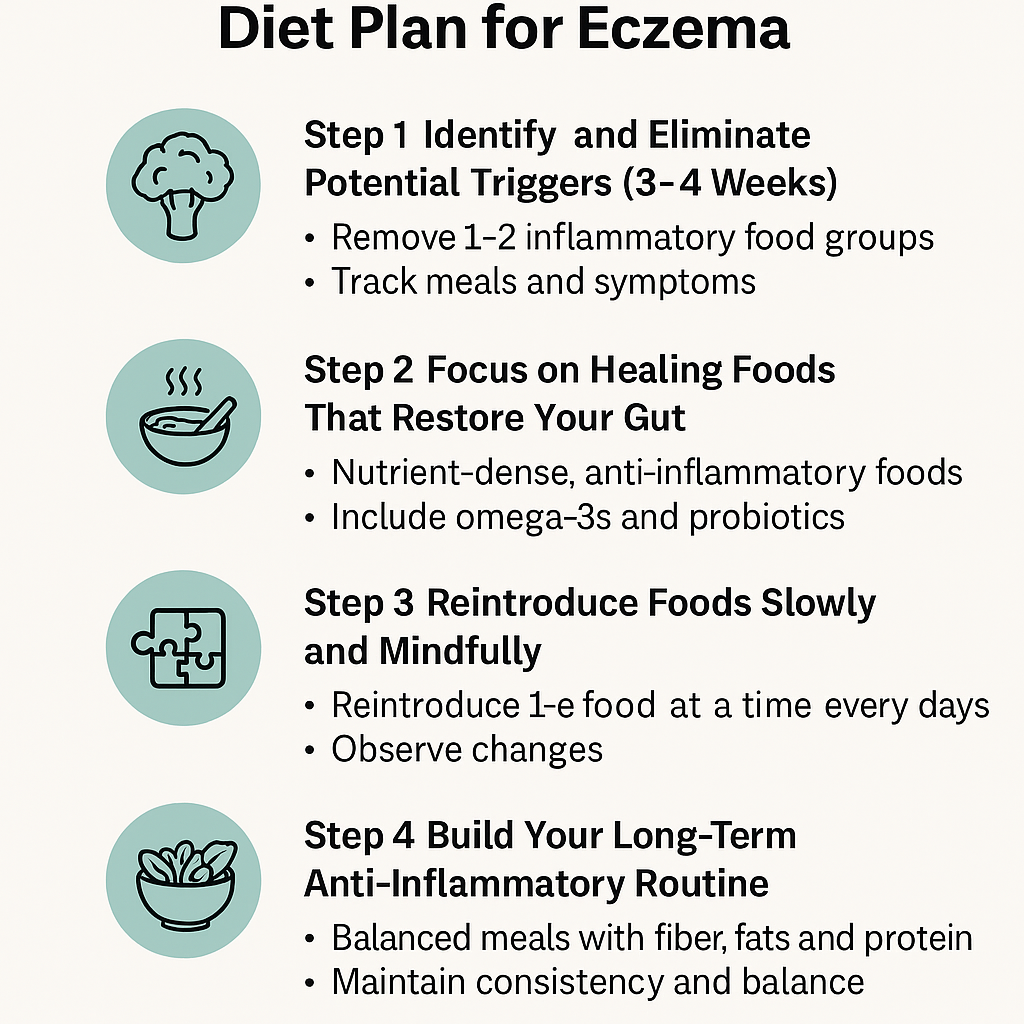
Sample Meal Ideas & 35 Recipes Sneak Peek
Healing your skin doesn’t mean giving up flavor or comfort food.
With the right ingredients, you can enjoy pancakes, cookies, and snacks that fight inflammation instead of causing it — all naturally gluten-free, dairy-free, and refined-sugar-free.
Here are some eczema-friendly recipe ideas inspired by the Eczema Nutrition Guide, created for busy people who want delicious, anti-inflammatory meals that actually support their skin. 🍽️
🌞 Breakfast & Morning Energy
🥞 Almond Flour Pancakes with Blueberries
Made with almond flour, eggs, coconut milk, and a touch of cinnamon — no gluten, no dairy.
→ Anti-inflammatory fats + antioxidants from blueberries = perfect gut-skin combo.
🍠 Sweet Potato Breakfast Bowl
Mashed roasted sweet potato topped with almond butter, chia seeds, and coconut flakes.
→ Balances blood sugar and gives steady morning energy.
🌤️ Lunch & Quick Meals
🥗 Eczema-Friendly Power Bowl
A quick bowl with brown rice, roasted veggies, and grilled turkey or salmon.
Drizzle with olive oil and lemon for an anti-inflammatory boost.
🍛 Coconut Chicken Curry
Chicken breast simmered with coconut milk, turmeric, and vegetables.
→ Gut-soothing, creamy, and dairy-free comfort food in 20 minutes.
🌙 Dinner & Warm Options
🍝 Zucchini Noodles with Pesto Sauce
Zoodles tossed in homemade pesto (olive oil, basil, garlic, walnuts, lemon).
→ A low-carb, gluten-free way to enjoy “pasta night” without inflammation.
🍲 Turkey & Veggie Soup
Ground turkey, kale, carrots, and bone broth.
→ High in protein, collagen, and nutrients for skin repair.
🍪 Snacks & Healthy Treats
🍪 Oatmeal-Coconut Cookies (No Sugar Added)
Rolled oats, mashed banana, shredded coconut, and a drizzle of pure maple syrup.
→ Chewy, naturally sweet, and rich in fiber and minerals.
🧁 Coconut Flour Mini Muffins
Made with coconut flour, almond butter, and cinnamon — soft, fluffy, and naturally low-glycemic.
🥥 Coconut Energy Balls
Blend dates, coconut flakes, chia seeds, and cocoa powder.
→ Perfect for an anti-inflammatory snack or post-lunch treat.
📘 What You’ll Find in the Full Guide
These recipes are just a preview of what’s inside the Eczema Nutrition Guide.
Inside, you’ll get:
✅ 35 exclusive anti-inflammatory recipes (breakfasts, snacks, lunches, and dinners)
✅ Easy meal prep plans for busy weeks
✅ Shopping lists and substitutions for gluten, dairy, and sugar-free cooking
✅ A complete roadmap to heal your gut and calm your skin naturally
🌿 Ready to enjoy food that loves your skin back?
👉 Get the Complete Eczema Nutrition Guide Here and start your 35-recipe healing journey today.
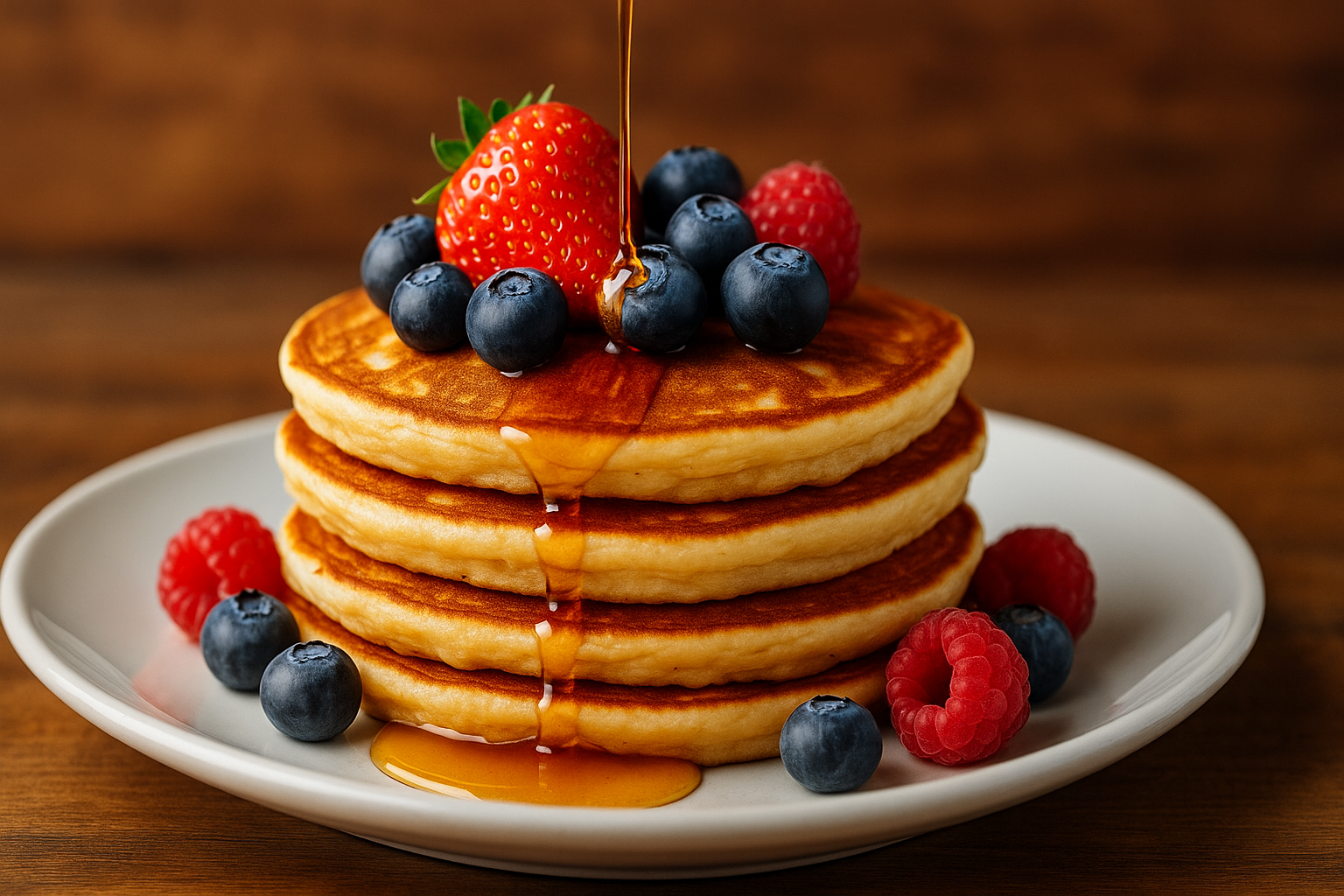
Integrative Support: Supplements, Natural Remedies & Skin Care
While nutrition is the foundation of eczema healing, sometimes your body needs extra support to repair the gut, reduce inflammation, and strengthen the skin barrier.
That’s where the right supplements and natural remedies can make a real difference — especially when used alongside an anti-inflammatory diet.
🌿 1. Probiotics and Prebiotics
Probiotics like Lactobacillus rhamnosus and Bifidobacterium longum can help restore gut balance and reduce inflammation markers linked to eczema.
Prebiotic fibers (like inulin and flaxseed) feed these good bacteria and keep your gut microbiome thriving.
💧 2. Omega-3 Fatty Acids (Fish Oil or Algae Oil)
Omega-3s are powerful anti-inflammatory agents that help reduce redness, dryness, and skin itching.
Studies have shown that regular omega-3 intake improves skin hydration and barrier function, which is essential for eczema-prone skin.
🧴 3. Skin-Soothing Nutrients
Nutrients like zinc, vitamin D, and evening primrose oil can enhance immune regulation and support natural skin repair.
Zinc, in particular, helps reduce flare-ups and supports collagen production.
🌸 4. Gentle, Non-Toxic Skin Care
External care matters too — choose natural, fragrance-free moisturizers with ingredients like shea butter, aloe vera, and coconut oil to keep your skin barrier protected.
If you’d like to explore these options in more detail, check out this in-depth article on natural eczema care:
👉 The Best Natural Treatment for Eczema — Healing from Within
And remember: supplements and remedies work best when your diet and gut health are aligned.
That’s exactly what the Eczema Nutrition Guide was designed for — to help you balance your gut, calm inflammation, and create the foundation for long-term skin healing.
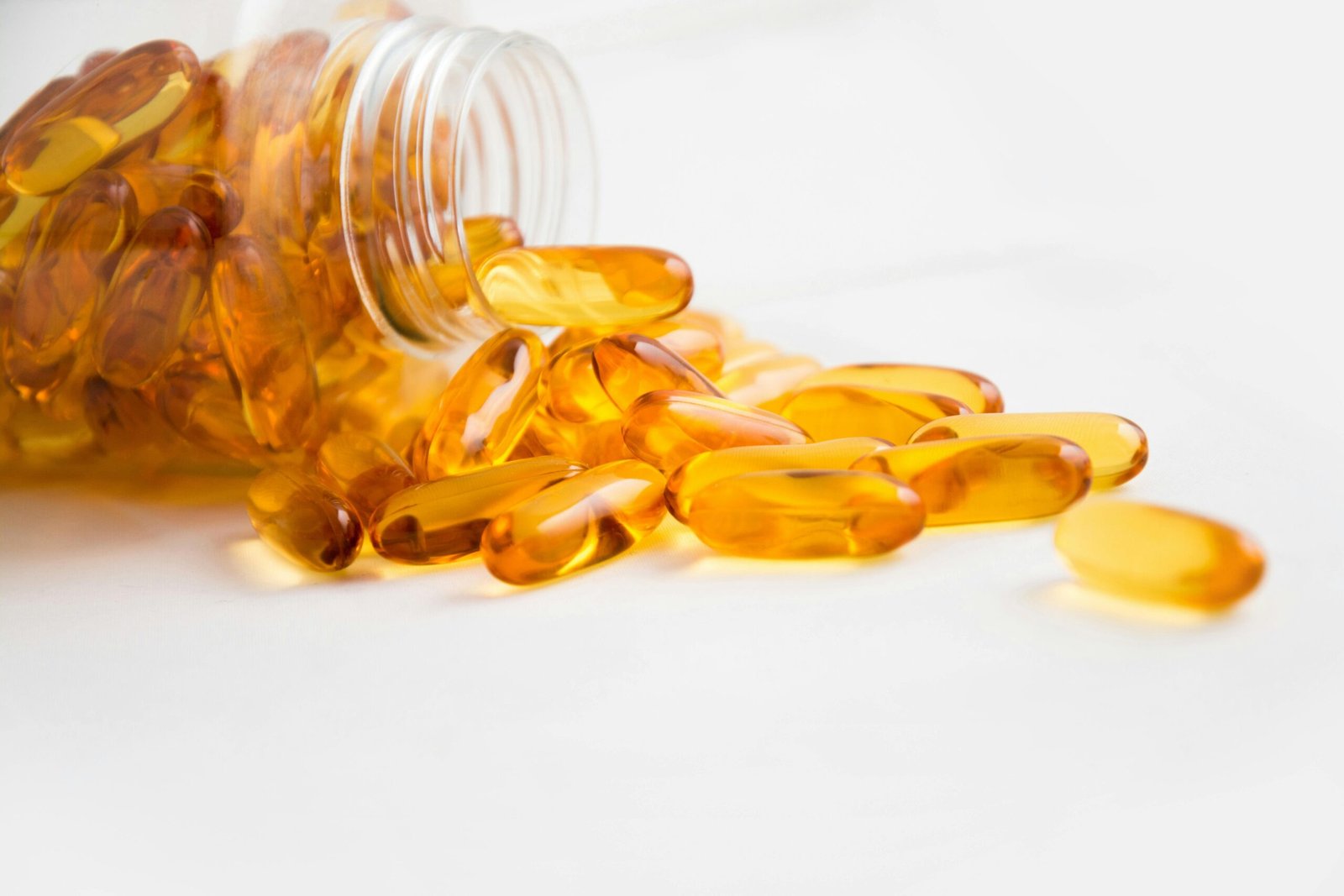
Final Thoughts: Heal Your Skin from the Inside Out
Eczema can feel overwhelming — the flare-ups, the itching, the endless search for something that finally works.
But healing doesn’t have to be complicated. The truth is, your skin is a reflection of what’s happening inside your body — especially in your gut.
When you start nourishing your body with the right foods, balancing your microbiome, and avoiding inflammatory triggers, your skin begins to calm — naturally.
No quick fixes, no harsh creams, no guessing. Just real, science-backed healing from within.
And that’s exactly what the Eczema Nutrition Guide was created for.
Inside, you’ll find:
✅ A simple, step-by-step plan to repair your gut and reduce inflammation
✅ A complete list of safe and trigger foods
✅ 35 exclusive anti-inflammatory recipes designed for eczema-prone skin
✅ Printable meal plans and shopping lists
✅ Evidence-based strategies to transform your skin — and your confidence
Your skin doesn’t define you — but it does reflect how your body feels on the inside.
You have the power to change that.
🌿 Start your healing journey today.
👉 Get the Eczema Nutrition Guide now and discover how to calm your skin from the inside out — one meal at a time.
